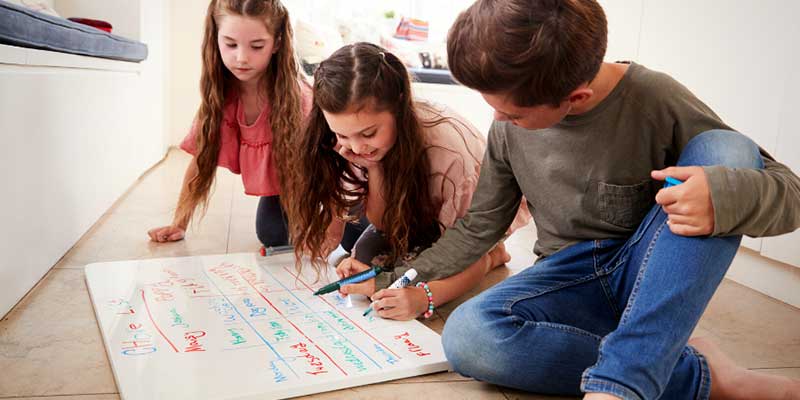Parenting Tips
Young Children Benefit from Doing Chores

What’s the appropriate age to introduce chores into your children’s routine? A study from the University of Minnesota found that teaching toddlers to do chores can have surprising payoffs later in life. People who began doing chores at the age of 3 or 4 were actually more successful as adults. Doing chores from an early age was an even better predictor of success than having a high IQ.
Lots of parents are familiar with children’s instincts to help around the house. Young children are often excited to help prepare dinner or do laundry. Often though, it’s easier to decline their help and complete these tasks ourselves. We think that including them will just slow us down. And this may be true. However, it turns out that taking advantage of children’s natural inclination to help can actually teach them valuable life skills that are more difficult to learn later. In many cases, parents and teachers report that assigning chores to young children teaches them to be part of team, and to take responsibility for their environment.
While involving very young children in daily chores may be somewhat unusual in the U.S., it is actually quite common in other places. At elementary schools in Japan, daily chores are a normal part of many students’ education. Beginning in first grade, students are responsible for everything from cleaning floors to serving lunch. Educators in Japan believe that it helps to teach the kind of civic skills and community-mindedness that we want students to develop. Because students take part in the practice from such a young age, cleaning up after themselves becomes a normal part of everyday life, even at school.
Although it is much less common, some schools in the U.S. have also begun using chores to teach children to be responsible for their space. At Armadillo Technical Institute in Phoenix, school-age children spend 30 minutes a day helping to clean the school after lunch. Kim De Costa, the school’s executive director, says that being responsible for the school’s upkeep teaches the students to respect their environment and encourages them to think of the school as theirs.
Even if most children in the U.S. don’t learn chores at school, parents can still use simple tasks to help teach valuable life skills at home. Researchers in the University of Minnesota study stress that it’s important to provide safe, easy opportunities for children to contribute. For instance, a toddler can help set the table using plastic cups and plates. Or a young child can practice their colors while helping to sort laundry. The key is to introduce these responsibilities before children are adolescents and have their own schedules packed with activities and other responsibilities. This way, young people learn to approach school and work with a sense of discipline that continues to pay off later in life.
Related Reading: 30+ Calming Kids Activities That Will Promote Peace in Your Household


